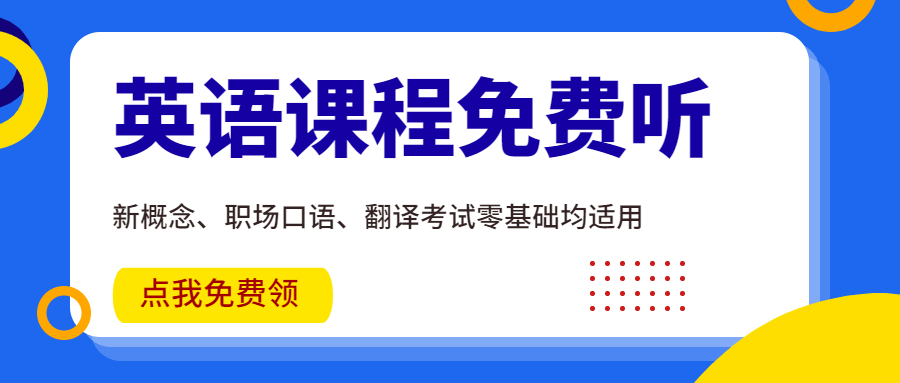CATTI考试,作为重要的翻译考试,也是比较有社会价值的英语能力证书。对于大家参加CATTI考试的同学,大家在实际的备考中,应该如何更好的来复习备考?为了让大家能够更全面的准备CATTI考试,新东方在线小编为大家整理了“2023年CATTI二级笔译综合能力真题解析Passage3:Part6,让我们一起来学习备考吧!

Questions 81-90 are based on the following passage.
A recent study by Oxford University estimates that nearly half of all jobs in the US are at risk from automation and computers in the next 20 years. While advancing technologies have been endangering jobs since the start of the Industrial Revolution, this time it is not just manual posts: artificial intelligence - the so-called fourth industrial revolution - promises to change the shape of professional work as well.
For instance, lawtech is already proving adept at sorting and analyzing legal documents far faster and more cheaply than junior lawyers can. Similarly, routine tasks in accounting are succumbing to AI at the expense of more junior staff.
This change is an opportunity to create new and better jobs. Paul Drechsler, who is president and chair of the CBI employers' organization and Teach First respectively, which recruits high-achievers into teaching, is enthusiastic about the future: "The fourth industrial revolution is the best opportunity that this country has had for decades to leapfrog" in terms of productivity and competitiveness. But he cautions that "the change is happening much faster than the education system".
The next generation will need a new set of skills to survive, let alone thrive, in an AI world. Literacy, numeracy, science and languages are all important, but they share one thing in common: computers are going to be far better than humans at processing these forms of explicit knowledge.
The risk is that the education system will be churning out humans who are no more than second-rate computers, so if the focus of education continues to be on transferring explicit knowledge across the generations, we will be in trouble.
The AI challenge is not just about educating more AI and computer experts, although that is important. It is also about building skills that AI cannot emulate. These are essential human skills such as teamwork, leadership, listening, staying positive, dealing with people and managing crises and conflict.
These are all forms of tacit knowledge, not explicit knowledge. They are know-how skills, not know-what skills. Know-what is easy to transmit across the generations, and is easy to measure. Know-how skills are hard both to transmit and to measure.
The employability skills gap is already large, and AI will only make it larger. A McKinsey survey found that 40 percent of employers cited lack of skills to explain entry-level vacancies in their companies. Sixty percent said that even graduates were not ready for the world of work.
The scale of the current response in the UK does not match the challenge. University technical colleges, the brainchild of former education secretary Lord Baker, explicitly address employability, with a focus on developing engineers, technicians and scientists of the future. In the last academic year, however, just 1,955 18-year-olds graduated from these schools; compared to the 770,000 18-year-olds in the UK, so that is a drop in the ocean.
Evaluation and league tables are a barrier to success - you get what you measure in education as much as you do in business. The schools' accountability framework keeps changing, but there is always some variation on measuring how well schools transfer know-what skills, especially English and math. The Progress 8 Framework, which assesses student progress in eight subjects, has no direct measure of employability skills.
Tom Ravenscroft, chief executive of Enabling Enterprise, challenges this approach: "We are doubling down on the idea that if we get children to know things and regurgitate them in a certain way in an exam, then we are setting them up for success in life."
Success depends on equipping the next generation with human skills that even AI cannot emulate: creativity, innovation, resilience, dealing with conflict, ambiguity and uncertainty. We are not ready for this. We have not even started to get ready.
81. The main topic of Paragraph 1 is about ________ in the United States.
A. opportunities brought by computers
B. prospects of the fourth industrial revolution
C. potential jobs related to artificial intelligence
D. job risks arising from advancing technologies
82. It can be inferred from Paragraph 2 that ________ will be replaced in the future.
A. only manual jobs B. only professional jobs
C. some professional jobs D. all professional jobs
83. According to Paragraph 3, Paul Drechsler is ________ about the prospects of Artificial Intelligence.
A. doubtful B. careful
C. hopeful D. impassive
84. The phrase "in terms of' underlined in Paragraph 3 is NOT synonymous to ________ .
A. in relation to B. in regard to
C. with respect to D. with regard to
85. All the following knowledge is easy to pass across the generations EXCEPT ________ .
A. literacy B. leadership
C. numeracy D. accounting
86. The problem about the present education system is its over-emphasis on ________ .
A. implicit knowledge B. explicit knowledge
C. tacit knowledge D. know-how knowledge
87. According to a McKinsey survey, many employers are complaining that ________ .
A. there is a tremendous lack of graduates nowadays
B. there is a lack of vacancies in their companies
C. graduates do not possess as many skills as they should have
D. graduates know very little about artificial intelligence
88. According to the author, the schools' present accountability framework is a ________ to students' success.
A. boost B. hamper
C. promotion D. stimulation
89. The word "regurgitate" underlined in Paragraph 11 is synonymous to ________ .
A. repeat B. redefine
C. reuse D. refine
90. According to the last paragraph, people in the AI era can succeed only if they are equipped with ________ .
A. creativity B. flexible thinking ability
C. problem-solving ability D. all of the above
以上就是新东方在线CATTI频道给大家整理的“2023年CATTI二级笔译综合能力真题解析Passage3:Part6”相关内容,希望对大家有所帮助,